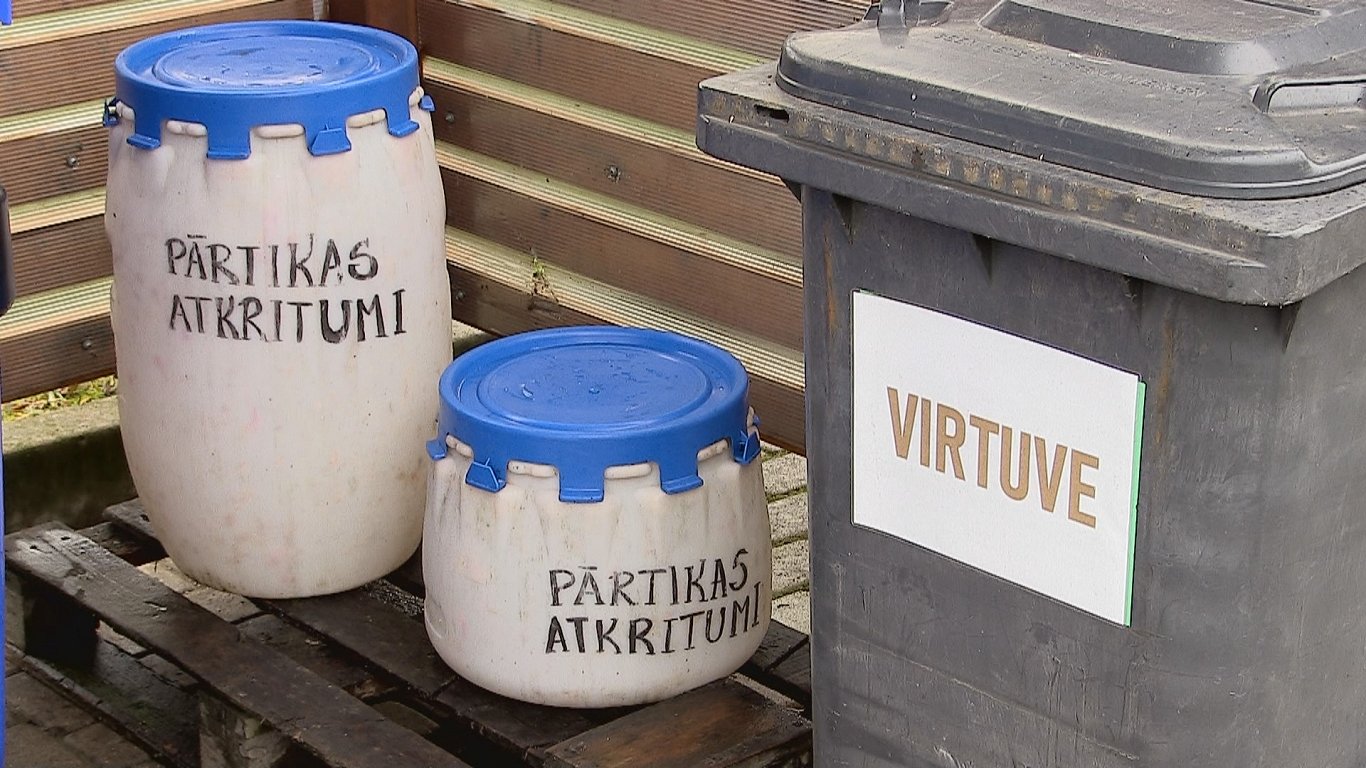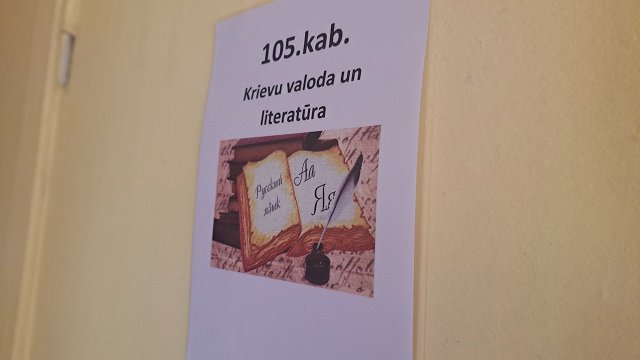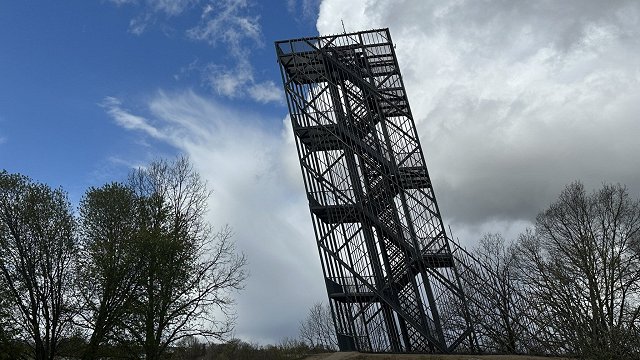Residents in Dobele have also been able to order the brown container for biowaste since August 2020. Alona Isajeva, head of the Sanitary industry at Dobele Utilities, explained that sorting biological waste for residents' wallets is friendlier than landfilling municipal waste.
"The first were individuals, followed by educational institutions - two kindergartens from Dobele and one from Auri. It's grass, leaves, little twigs, but for now, we haven't encountered food waste."
The Dobele State Gymnasium is also thinking about ordering a biowaste container. Principal Inese Didžus said it would be more of a learning opportunity.
"We must have been the first, at least among the city's schools, to ask the utility for the opportunity to sort the rubbish in divided containers. We had a space to install it and so we learned to separate paper from other rubbish. At the moment, we will learn to separate, for example, the cores of apples and maybe some other leftovers that students."
But where does the largest education facility in Dobele put food waste?
“We dealt with those needs a little differently. Food waste is very, very small [in volume], and because we are outsourced, the caterers themselves deal with it. If they have to make a contract then they will make it, but at the moment they have an arrangement with a farm that collects what is left over - bark, trimmings etc. And it goes to the dogs, the pigs that the keeper feeds there,” Didžus said.
While some experience of sorting biological waste has already developed in the municipality of Dobele, the municipality of Aizkraukle is just taking the first steps. Deputy Chairman of the municipality Council Andris Zālītis said that the municipality had long been unsure which waste management region it would fall into, so currently bio-waste is sorted only in Aizkraukle city and Aizkraukle parish.
“In the end, we are in the waste management region of Latgale, and, in the case of biological waste, we have a waste management plan, where the procedures for the management of such biological waste will also be included. We currently have four managers in the county, and only one currently manages biological waste, it is the capital company of Aizkraukle. We have 26 containers in the city and parish to collect bio-waste, they are also by the catering establishments, where this capital company collects them and transports them,” Zālītis noted.
In schools where there are no containers for bio-waste, they are placed in municipal waste. “But everyone knows it's going to have to be done and it's going to be done as well.”
In Bauska municipality, the possibility of sorting biological waste has been offered for two years, but according to Bauska utility chief Uģis Saukums, it's not going too well with schools and kindergartens.
"We have offered these customers this service, to place these brown containers and manage this waste, but we have not succeeded because there are, say, cheaper options [..] somehow they are dealing with that biological waste differently. We are working more and working successfully with those customers who have food processing and who have a permit from the Environmental Service and it is embedded in that permit that it is also mandatory to pass on biological waste. Then this cooperation is there and the service is provided in full, but it is more difficult with these institutions because, as I have said, they have their own ways."
What those ways were, Saukums didn't know. It probably depends on which educational institution or caterer has a contract for the management of waste.
Meanwhile, in Jelgava, sorting of biological waste has long been introduced in several educational institutions.
“We have a number of educational institutions implementing eco education direction and sorting biological waste is already actually at the heart of this educational philosophy. In kindergartens, for example, all those things left over from cleaning the area are composted. Compost is made, which is then used to grow something together with children. When it comes to food waste, catering is outsourced to us and we deal with this issue in collaboration with the diner,” said Jelgava city education administration representative Sarmīte Joma.
She said there was a separate container outside the facilities where both leftovers from the cooking process and the uneaten food were thrown away. Joma added that there are a number of kindergartens where there is cooperation with small entrepreneurs who raise livestock and use the surplus produce on their farm.
Meanwhile, the Association of Catererss of Educational institutions said that in almost all kitchens of educational institutions, at least those known to them, biological waste sorting is already underway. Most contracts are with waste management organizations, but there are municipalities where there is no such option yet and there is a contract with a company or private individual.
"What we are doing to make this measure more effective and acceptable, we are thinking more about reducing the amount of this biological waste in the kitchens of educational institutions. We choose vegetables that have already been cleaned as much as possible. As a result, we already have a significant reduction in biological waste here.
"Then we also invite schools to collaborate, parents to collaborate, and [..] we encourage children to create their own lunch portion, so learning to put as much on as they can eat, and so there's a significant reduction in the amount of waste in this case as well.”




























